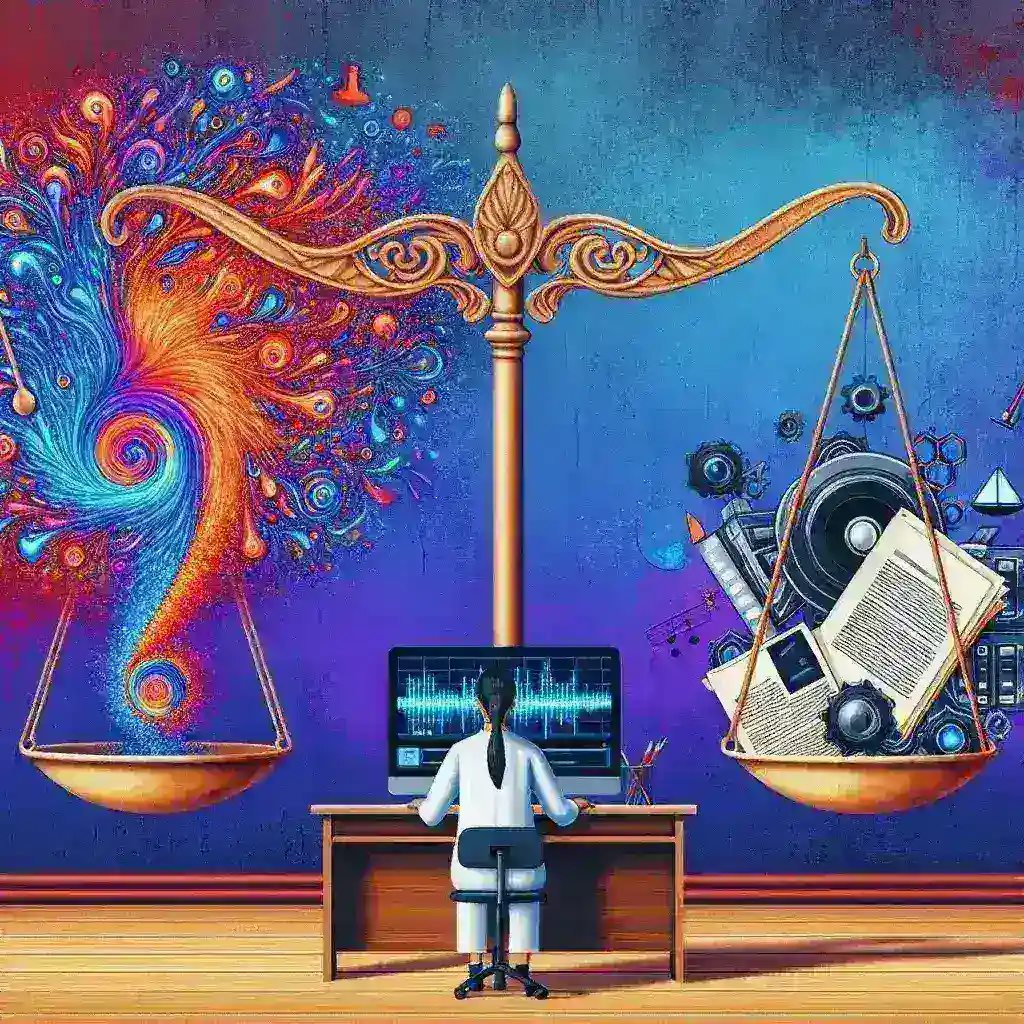Introduction
In the rapidly evolving landscape of technology, video AI startups have emerged as a dynamic force, reshaping how content is created, managed, and consumed. Balancing creativity with compliance is crucial for these innovators, as they navigate a maze of regulations while striving to push the boundaries of artistic expression. This article delves into how video AI startups achieve this delicate equilibrium, focusing on various aspects such as technological advancements, industry standards, and ethical considerations.
The Rise of Video AI Startups
With the advent of artificial intelligence (AI) and machine learning, the video industry has witnessed transformative changes. Startups harnessing these technologies have made significant strides in automating video production, editing, and even personalized content generation. According to recent reports, the global video AI market is projected to grow at a staggering rate, illuminating the critical role of innovation in this sector.
Understanding the Need for Compliance
As video AI startups innovate, they must also adhere to various compliance regulations. These regulations may stem from government mandates, industry standards, and ethical considerations. Compliance ensures that startups protect user data, respect intellectual property rights, and provide accountability for their AI-generated content.
Data Privacy Regulations
One of the most significant compliance challenges for video AI startups is data privacy. Regulations such as the General Data Protection Regulation (GDPR) in Europe and the California Consumer Privacy Act (CCPA) in the United States impose strict guidelines on how personal data can be collected, stored, and processed. Startups must implement robust data management practices to comply with these laws while still leveraging user data to enhance their AI algorithms.
Intellectual Property Considerations
Another essential aspect of compliance revolves around intellectual property (IP) rights. AI-generated content raises questions about authorship and ownership. Startups need to navigate the complexities of copyright law to avoid potential legal issues while fostering creativity. Establishing clear guidelines for content creation that respect existing IP rights is vital.
Nurturing Creativity Through Innovation
While compliance is essential, creativity remains the lifeblood of video AI startups. Innovative technologies enable startups to push creative boundaries, offering unique solutions that captivate audiences.
AI-Driven Content Creation
Video AI startups leverage machine learning algorithms to analyze audience preferences and trends. By doing so, they can produce tailored content that resonates with viewers. For example, AI tools can examine viewer engagement data to suggest optimal video lengths, styles, and themes, allowing creators to produce compelling narratives that align with audience expectations.
Collaborative Tools for Creators
Many video AI startups provide collaborative platforms that empower creators to experiment freely. These tools often include intuitive interfaces, stock libraries, and automated editing features that simplify the production process. By reducing technical barriers, startups foster an environment where creativity can flourish, enabling creators to focus on storytelling and artistic expression.
Achieving a Balance
Finding the balance between creativity and compliance requires strategic planning and a proactive approach. Startups must cultivate a culture that values both innovation and adherence to regulations.
Developing a Compliance Framework
To successfully navigate compliance challenges, video AI startups should establish a dedicated compliance framework. This framework should outline policies and procedures for data handling, IP management, and ethical AI use. By creating a comprehensive compliance strategy, startups can minimize risk while encouraging creative exploration.
Engaging with Legal Experts
Collaboration with legal professionals who specialize in technology and intellectual property law is crucial. Startups can benefit from legal advice on regulatory requirements and best practices for ensuring compliance without stifling creativity. Regular training sessions can also equip team members with the knowledge needed to navigate the complex legal landscape.
Real-World Examples
Several startups have successfully demonstrated how to balance creativity and compliance in their operations.
Example 1: OpenAI’s DALL-E
OpenAI’s DALL-E showcases the potential of AI-generated content while navigating compliance concerns. By implementing guidelines that restrict the generation of harmful or misleading images, OpenAI promotes ethical use of its technology while fostering creativity. Their approach exemplifies how startups can innovate responsibly.
Example 2: Synthesia
Synthesia has revolutionized video production by allowing users to create video content using AI-generated avatars. They prioritize compliance by ensuring that the avatars used are not based on real individuals without consent. This commitment to ethical practices enhances their creative offerings while maintaining compliance with privacy regulations.
Future Predictions
The future of video AI startups will likely see an increased emphasis on compliance as regulations evolve. As AI technology becomes more integrated into our daily lives, startups will need to stay ahead of the curve by adapting to new legal requirements.
Proactive Compliance Strategies
Startups that proactively develop compliance strategies will have a competitive edge. By anticipating regulatory changes, they can refine their processes and reduce the likelihood of legal complications. Engaging with policymakers to shape the regulatory framework can further empower startups to innovate while ensuring compliance.
Expanding Ethical AI Practices
As the industry advances, ethical considerations surrounding AI use will continue to gain prominence. Startups that prioritize ethical AI practices will not only comply with regulations but also build trust with their audiences. Transparent communication regarding data usage and content creation will foster positive relationships with users.
Conclusion
In conclusion, the journey of video AI startups in balancing creativity and compliance is intricate yet essential. By embracing innovative technologies, establishing robust compliance frameworks, and prioritizing ethical practices, these startups can thrive in a competitive landscape. As they navigate the ever-changing regulatory environment, the ability to adapt and innovate will be key to their success. The future holds immense potential for those who can strike the right balance between nurturing creativity and ensuring compliance.

